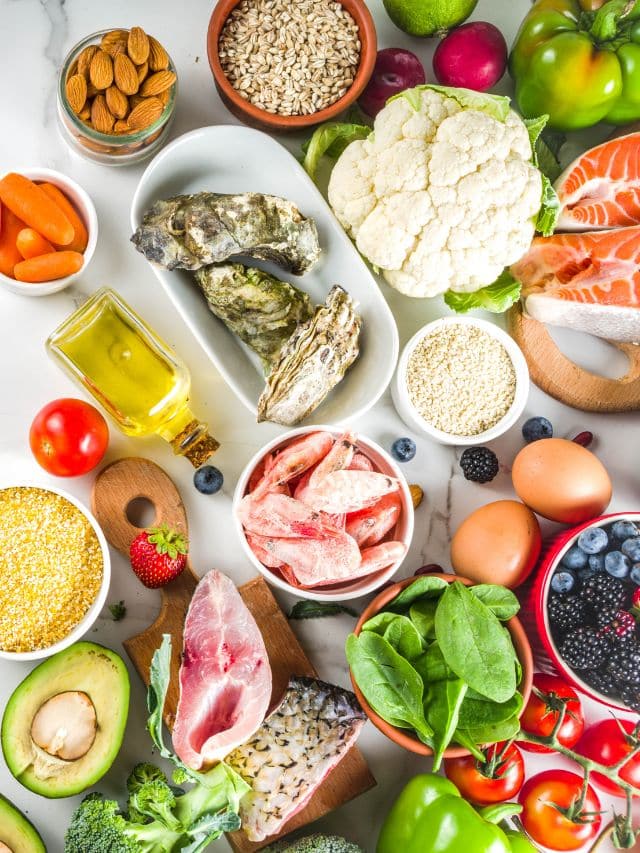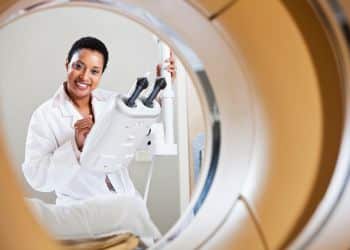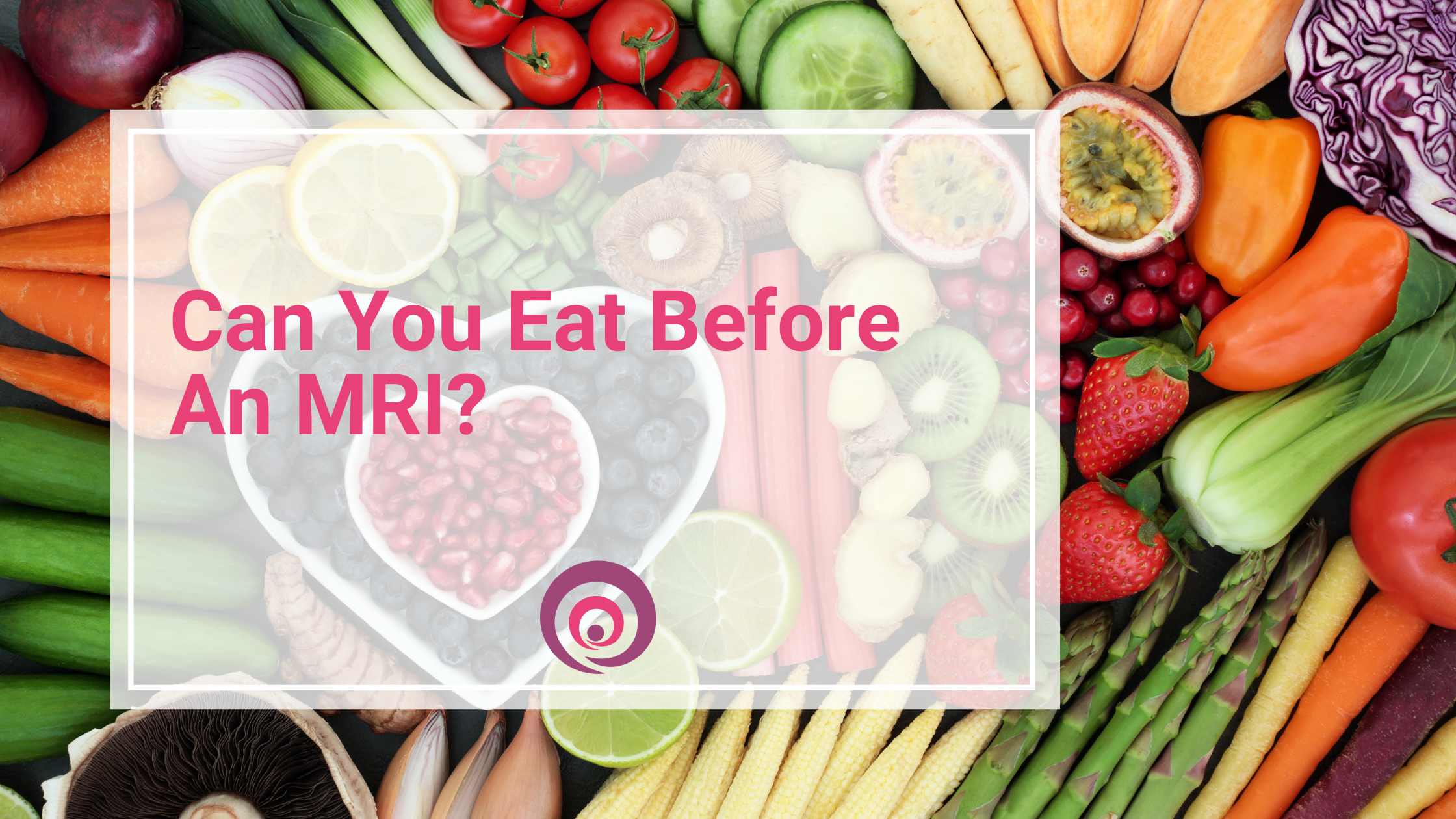When preparing for an MRI, one of the crucial factors you need to address is whether or not to eat and drink before the scan. You must have often heard about the requirement of fasting in typical medical practices, but that’s not the case with MRIs.

Here, the type of scan you need to pursue determines whether or not you can eat and drink before the appointment.
Does Eating Before An MRI Affect The Scan Result?
Only sometimes! That precisely depends on the type of scan you are prescribed, where you would be asked to fast before the scan to get accurate images.
But, mostly, an MRI scan doesn’t require fasting and the machine captures the images based on body tissues. Hence, eating or having food in your stomach doesn’t interfere with the process.

Can You Eat Before An MRI?
Yes. You can in most of the cases!
In certain MRIs, the medical team would ask to avoid eating and drinking.
That’s mainly when the doctor prescribes an MRI with contrast, i.e., a dye injected into your bloodstream to speed up the proton activity in your body and produce brighter, clearer images, mostly requisite for diagnosing deeper tissues.
Eating before an MRI contrast may leave room for certain substances of food existing in your bloodstream to intervene in the path to derive accurate images of the tissues and also affect the absorption of the contrast.
Doctors also recommend not eating before an MRI scan for those who have esophageal reflux. Lying down soon after eating and drinking, and that too, for so long, may lead to heartburn or acid reflux, disrupting the scan process.
Besides, if you have anxiety and claustrophobia tendencies, taking medications or sedatives for the MRI scan, you would also want to avoid eating or drinking for at least two hours before your appointment.
However, you must also remember that MRI scans sometimes take hours to complete. So, if you have an overactive bladder, you must consult your doctor about your consumption of liquids a few hours before the test.
As you must know, overactive bladder symptoms make you feel like you need to pee and empty your bladder all the time. That might cause inconsistencies in the scan process.
Which MRI Scans Require You to Fast?
Doctors can recommend not eating and drinking for several hours. That’s mostly in the case of abdominal scans!
That’s because the food in your stomach or intestine may interfere with image clarity, making it harder to capture the nitty-gritty of the organs.
In the case of MRIs for examining the pancreas, bile ducts, or gall bladder too, doctors ask you not to eat anything before the scan. Indeed, these organs are also a part of the digestive system and anomalies are difficult to be traced.
Sometimes, doctors even ask for fasting before a cardiac MRI and those to detect the blood flow to your mesenteric blood vessels, supplying blood to the bowel, called Mesenteric Ischemia MRI.
How Long Should You Fast Before An MRI?
If fasting is a must for your MRI scan, it’s mostly for 4-6 hours. That’s for abdominal MRI, MRCP — Magnetic Resonance Cholangiopancreatography, and the Mesenteric Ischemia MRI.
For cardiac MRIs, doctors usually suggest two hours, and for MRI with contrasts, conducted mainly for a soft tissue diagnosis, the requisite fasting duration may be extended to eight hours.
What Can You Eat Before An MRI?
Usually, for an MRI that doesn’t need you to fast, you can have a normal balanced diet like any ordinary day.
Medical experts recommend taking lighter meals to avoid circumstances of discomfort or bloating during the MRI scan. Here is a list of foods that are considered safe and healthy to have before an MRI.
- Fruits, as they are easy to digest and won’t cause discomfort.
- A bowl of soup or a plate of salad filled with vegetables as they are light for digestion.
- Fulfilling yet lighter on the side of digestion, the lean proteins, like fish, chicken, or turkey, but boiled or grilled and with no masala, of course!
- Plain carbohydrates rice or bread, as they would give energy without being too heavy.
What Can’t You Eat Before An MRI?
Before an MRI, ideally, it’s better to avoid gas-producing foods, and some of them are as follows!
- Spicy foods as they tend to cause indigestion often.
- Fried, greasy, oily foods as they are quick to stir bloating and discomfort.
- Dairy products, such as milk, butter, ghee, paneer, etc. (especially if you are lactose-intolerant).
- Frozen and processed foods, as they too are prone to cause gas and bloating.
- Carbonated drinks and food that are high in sugar content, as the sudden energy spikes followed by the crashes may make you feel tired and low during the MRI scan.
What About Drinking Water Before An MRI Scan?
Drinking water before an MRI is considered fine and encouraged, rather, as water is what keeps you hydrated.
Nor can it intervene in the scan process, apart from an abdominal MRI or MRCP, where you would be asked to avoid drinking water for about 4-6 hours before the scheduled scan.
This is because the presence of fluids in your stomach can hereby tamper with the MRI image clarity.
Final Advice: Check With Your Doctor!
You must always consult with your doctor about whether or not to eat, and what to eat; what not to eat, before an MRI scan.
With the variation in medical practices, the requirements are likely to differ for every case.
You must carefully follow all the instructions your doctor and the medical team provide you with to get an accurate scan result.
To conclude, if your doctor recommends an MRI scan in Chandigarh, and you wish to get it done hassle-free, safe, and at your convenience, drop by www.mrichandigarh.com and book a scan herein. The platform lists some of the top NABL-certified radiology labs in the city with state-of-the-art infrastructure and specialized MRI technologists.
Find Our Links for Best MRI centre in Chandigarh
Instagram: @mrichandigarh
Facebook: MRI Chandigarh
X (formerly Twitter): @MRIChandigarh
LinkedIn: MRI Chandigarh
Mail at : [email protected]
Contact : 8699572364
Address: Mri Scan in Chandigarh

Comments